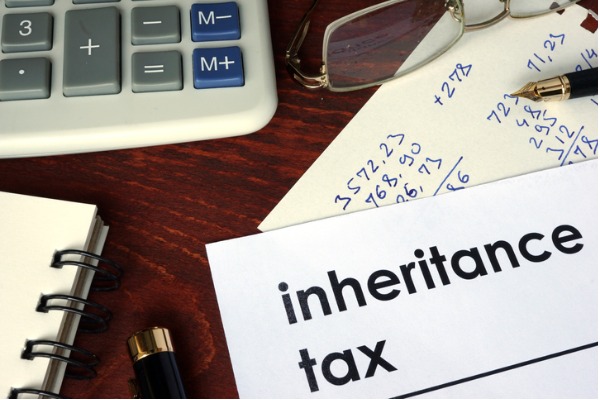Highest inheritance tax on record: five ways to reduce your bill
11th July 2022 14:13
by Alice Guy from interactive investor
Inheritance tax is at its highest level for years as more people are caught in the net. Alice Guy examines five ways to minimize your inheritance tax bill.

Inheritance tax, Britain’s most hated tax, is on the increase. The average price of a detached home in the UK rose to £445,000 in April 2022, and well over £1 million in London. Between January to May this year the Treasury took £2.5 billion in inheritance tax, up 9.1% from the same period last year.
But thankfully there are several ways you can reduce your inheritance tax bill. UK-domiciled spouses can leave their assets to each other free of inheritance tax, as well as leaving each other any unused nil rate band (worth £325,000) and residence nil rate band (worth £175,000). That means as a couple you can potentially leave up to £1,000,000 without paying inheritance tax if you qualify for both exemptions.
But what about other tax saving ideas?
- Secret tax raid as millions more people pay higher-rate tax by 2024
- Six taxes new chancellor Nadhim Zahawi could cut
1. The seven-year rule
Giving away assets before you die is perhaps one of the simplest ways to avoid inheritance tax. The catch? You’ll have to live seven years after the gift to avoid inheritance tax completely. That means it’s normally no good giving away assets on your deathbed to avoid tax.
Be careful because this rule is commonly misunderstood. If you die within seven years of the gift, the value of your nil rate band will reduce by the amount of the gift, so you might not end of saving any tax. If you give away more than the nil rate band, then tax due on the extra amount is tapered after three years.
You also can’t artificially “give away” assets but still use them: for example, giving away your house but still living in it won’t count as far as the taxman is concerned.
2. £3,000 annual gifts exemption
You’re allowed to give away up to £3,000 per tax year in total, without owing inheritance tax, even if you don’t survive seven years. Beware, because the taxman will add up all your gifts and the exemption is in total rather than per person.
And you’re also allowed to give away up to £5,000 extra if your child gets married, up to £2,500 if a grandchild gets married and occasional small gifts of £250 per person each tax year.
3. Regular gifts from excess income
Perhaps the most generous, little-known tax rule is that you’re allowed to give regular gifts from excess income you don’t need: there’s no limit on this amount and the seven-year rule doesn’t apply.
You need to keep a careful record to prove that the money really was excess income and you didn’t need it to live on.
For example, if you’re living within your means and you take £500 income per year from your pension but it’s just going straight into savings, this would normally be classed as excess income. You could give a regular gift to your son or daughter to help with their rent and it would be immediately outside your taxable estate.
4. Use your pension to save inheritance tax
Of course, most people need to use their pension to provide an income in retirement. But, if you’re lucky enough to not need your pension, then any pot remaining when you die will usually pass without attracting Inheritance Tax.
This can have an impact on the order you decide to access your wealth. Eg. Wealthy and elderly pensioners may decide to dip into their stocks and shares ISA before their pension to save on inheritance tax.
However, tax planning for your pension is a complex area, so make sure you take advice.
5. AIM shares
If you own unlisted shares or AIM shares, then these may be free of inheritance tax. That’s because they attract business property relief, which can be up to 100%.
Check before you invest as AIM companies need to be actively trading and not investment or property businesses to be eligible for the relief.
Ask for advice
If you think you might need to pay inheritance tax, then it’s important to get legal advice to understand your potential liabilities and how you can minimise your tax bill.
There are many extra fiddly Inheritance Tax rules and other taxes that might affect your estate planning decisions.
These articles are provided for information purposes only. Occasionally, an opinion about whether to buy or sell a specific investment may be provided by third parties. The content is not intended to be a personal recommendation to buy or sell any financial instrument or product, or to adopt any investment strategy as it is not provided based on an assessment of your investing knowledge and experience, your financial situation or your investment objectives. The value of your investments, and the income derived from them, may go down as well as up. You may not get back all the money that you invest. The investments referred to in this article may not be suitable for all investors, and if in doubt, an investor should seek advice from a qualified investment adviser.
Full performance can be found on the company or index summary page on the interactive investor website. Simply click on the company's or index name highlighted in the article.